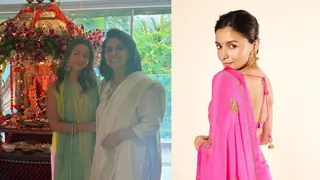Originally posted by: sangeetaa
👏 👏 👏
Exactly - the issue underlying is is exactly that - what constitutes artistic
creativity?
My hunch is there is a cultural difference between India and Western
culture
on this question.
There is 1 quesiton I want to ask you on riyaaz - is riyaaz a form of
sadhana?
======
aside to cb: in my mind the question is not - which is superior? that
doesn;t interest me so much for the simple that i can't stop being indian
even if the western culture is better... what i am interested in is
understanding the difference, (assuming my hunch is right).
👏
dil to hai phir bhee hindustani (mera bhee)
n i dont believe any one culture gets the cake across the board. we all have our strengths. i feel we had it together thousands of years ago with the guru-shishya school of thought when we were the world's center of learning, but then somewhere we lost that edge. hopefully we're coming back now.


























